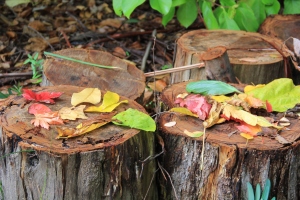I’ve never reblogged a post before but this post by Lu-Ann from The Life-long Learner deserves a wider audience. It’s a fantastic in-depth literature review of outdoor kindergartens, focussing on the Melbourne experience and placing them into the context of the history of outdoor education in relation to Kindergarten programs.
Lu-Ann traces outdoor kindergartens back to Froebel, the founder of the Kindergarten movement, notes the historical movement away from Froebel’s original emphasis on outdoor learning into a classroom-based pedagogy, and the recent re-emergence of outdoor kindergartens. She explores the wider context of the re-connection of children to nature, the questions, concerns and controversies raised about outdoor education, and looks at the policy and political context specific to Australian outdoor kindergartens.
It is a wonderful document, full of insight, and it displays a true depth of both practical knowledge and academic expertise. Best of all, it is fully referenced to both the academic and the more general literature relevant to outdoor kindergartens, and to the whole issue of re-connecting children to playing & learning in the natural environment.
It’s not just relevant to Australian educators: this article is exceptionally useful to anyone, in any country, who is interested in outdoor education, and it is especially relevant to people (or any organisation or school) who are considering the idea of introducing outdoor kindergarten/outdoor education in their country.
Enjoy!
“Using the real world is the way learning has happened for 99.9% of human existence. Only in the last hundred years have we put it into a little box called a classroom”. Nixon, 1997:34
Introduction
As Tim Gill explains, initiatives embracing Forest Schools and outdoor kindergartens have increased considerably over the last few years (Gill, 2009).
This enquiry will explore the pedagogical beliefs behind outdoor programs and why they have emerged in Melbourne, Australia, looking at outdoor play and its “importance as a pedagogical space for children’s play, learning and development” (Moser & Martinsen, 2010).
 My inquiry will be in the form of a literature review, exploring the history of outdoor education in relation to Kindergarten programs, and the current emergence of specific outdoor programs around Melbourne, Australia.
My inquiry will be in the form of a literature review, exploring the history of outdoor education in relation to Kindergarten programs, and the current emergence of specific outdoor programs around Melbourne, Australia.
First I shall look at the connection between Kindergartens and learning outdoors, examining Froebel – the founder of Kindergartens – the subsequent…
View original post 5,286 more words


